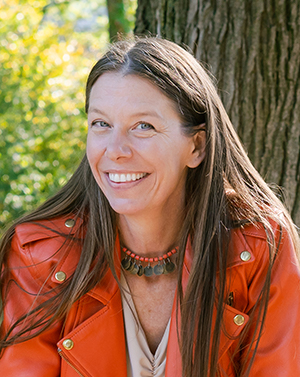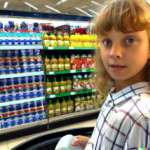






Exactly a Year Ago My Tween Was on The Staten Island Ferry, Sinking
Today’s post comes from social psychologist and collaboration guru Deb Mashek. Mashek has been a full professor of psychology at Harvey Mudd College and Executive Director of the national nonprofit, Heterodox Academy. Now she uses those skills to help leaders of mission-driven organizations collaborate across stakeholders and with other organizations — everyone that matters to advance big visions. She is the author of Collabor(h)ate. Website: www.debmashek.com.
OUR KIDS’ FUTURES DEPEND ON THEIR ABILITY TO COLLABORATE
We’re not giving them the independence they need to learn this critical skill
By Deb Mashek
One year ago today, I received the text every parent fears:
Life jackets being forced on everyone, smoke is crazy
I’m scared
If anything happens I love you
My 13-year old son was commuting home alone aboard the Staten Island Ferry on December 22 last year when a fire broke out in the engine room, not far from where he was sitting.
Smoke filled the area. The lights went dark. The crew initiated safety protocols.
Waiting at the terminal.
When he finally made it to the ferry terminal where I was anxiously waiting, I expected his state to echo my own: in tears, shaken by the intensity of a scary situation.
Instead, he excitedly told me about how quickly the Coast Guard had arrived, how tugboats and cruise ships alike had responded to the distress call, how the capable crew helped passengers evacuate, and how annoyed he was that he didn’t get to keep the life vest as a memento of the adventure.
He added that he had helped two older adults secure their vests, that the crowd had made way for a distraught mom to get to the front of the evacuation line, and how an off-duty tour guide sang songs to bring a bit of levity to the chaos.
Was I surprised by his reaction?
Am I proud of the way my son composed himself and helped others during the ferry fire? Absolutely. Am I surprised that he was able to gracefully navigate an emergency situation filled with smoke and ambiguity? No.
By design, this kid has tackled a gradient of developmentally appropriate challenges and responsibilities since he was old enough to walk. These have included using the big-kid slide when he wanted, making dinner reservations for the family, climbing the tallest trees, holding conversations with strangers, orchestrating neighborhood-wide games of hide and seek, and navigating New York City transit alone.
Children must “learn to chew.”
By exercising his decision making, problem-solving, and interpersonal connection muscles persistently over time, my son has learned two important lessons. First, that other people are generally nice and helpful. Second, that he is a capable human with the inner resources and social competencies to face and overcome challenges.
As I’ve heard Let Grow Pres. Lenore Skenazy say: “Kids are so much more competent than our culture gives them credit for! They are almost desperate for an occasion they can rise to. That’s how they can finally see – and show everyone else — what they’re made of.”
And yet, when she says this, Lenore admits, people often respond: “‘You say independence is so good for kids, but what if something bad happens?’ As if childhood is supposed to be a smoothie. Don’t you want your children to learn how to chew?”
Where real safety comes from.
I get it. I appreciate that these concerns come from a place of deep caring. We all want our kids to be safe and we all want to set our kids up for success.
These concerns also come from a place of deep misunderstanding. Enduring safety and success come from practice and empowerment, not from protection.
If we want our kids to develop into confident, competent, and collaborative adults who can navigate an increasingly complex world, we must provide them with loads of opportunities to develop those capacities way before adulthood.
The connection between independence and collaboration.
As an expert in workplace collaboration, I was struck by all the helping hands that appeared in the harbor the afternoon of the ferry fire. I was particularly struck by my son’s wherewithal to both notice and step up to help people at a time when others were in emotional distress.
I see the value of these abilities every single day across sectors and in organizations of all shapes and sizes. People with collaborative skills and collaborative mindsets connect with others, engage with curiosity and humility across lines of difference, integrate diverse perspectives, and overcome the inevitable interpersonal snags that emerge when working with others.
The urgent problems facing society – climate change, poverty, education, to name a few – are too big for any one person, one organization, or one sector to tackle alone. The solutions, too, will be complex, interdisciplinary, and nuanced. Collaboration is essential.
For kids (and organizations) to succeed, they need to learn how to work with other people.
As a result, great collaborators are in high demand in the workforce. They’ll be even more so over the next two decades as our kids reach maturity amid rapid economic and social change. How do we raise kids who will thrive in that future world of work?
Give kids the independence they need to navigate challenges, including sticky social situations, on their own so that they can learn about their own abilities, as well as what works — and why — when dealing with other people.
Our kids’ future success in a messy world, not to mention the solutions to society’s biggest problems, depend on their ability to collaborate. Let’s give our kids the independence they need to learn it.
___

Social psychologist Deb Mashek.
Let Grow here: Looking for ideas for independent experiences for your kids? Get our Independence Kit for ages 5-13, free!



He sounds like a smart and good young man. You will probably have no worries about his character as he grows up. As far as collaboration is concerned, it has its place, especially in emergencies; however, some people do their best work when they’re given an assignment and then just left alone to get it done. Teamwork is overrated, and is not the best approach in all cases.
Good for your son! And good on you for raising such a competent young man.